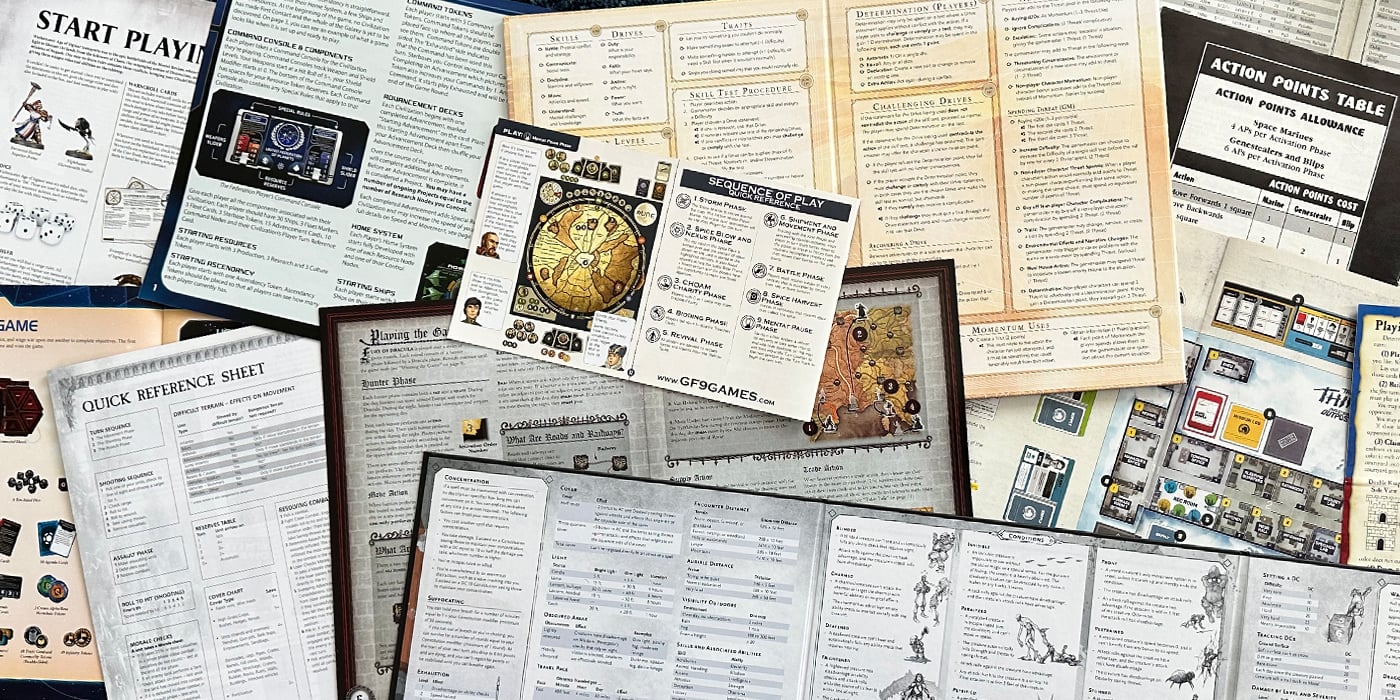Game Rules
Tabletop, RPG & Boardgame Rules News, Reviews & Editorials. In tabletop games and RPGs, the rules govern and guide the player's actions, as well as the game's response to them. A rule is an instruction on how to play, a ludeme is an element of play like the diagonal move of the bishop in chess. Game rules thus effectively specify how the game will work for the people who play it. All games use rules, though there are different theories as to their ultimate importance to the game. In general, the process and study of game design are efforts to come up with rules that allow for people playing a game to have an engaging, but not necessarily fun, experience. The interaction of various rules in a game determines the complexity and level of player interaction with a game. In concert with the game's environment and resources, the rules determine game balance. Some game rules designs have been used in games for centuries, while others are new, recent inventions. Examples of common game rules and game mechanics include: Turns, Actions, Economics, Bidding, Set Collection, Resolution, Victory Conditions, Role-playing.












